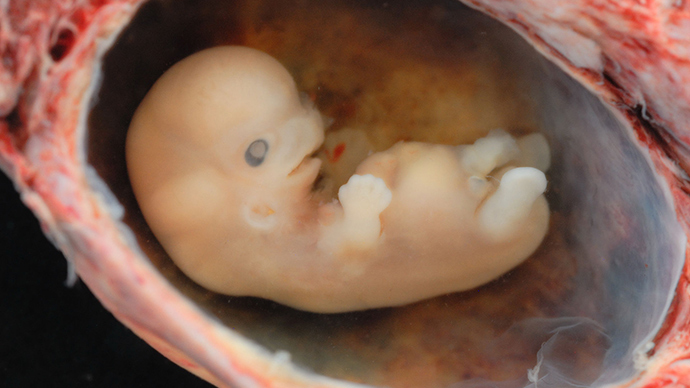‘Ethically risky’: Switzerland votes to screen embryos for genetic defects

Almost 62 percent of Swiss voters have given their support to genetic screening of embryos. This will allow embryos conceived with the help of in vitro fertilization to be tested for genetic defects and diseases before they are implanted.
This screening, known as pre-implantation genetic diagnosis (PGD), will only be available for those unable to conceive naturally or carriers (not necessarily sufferers) of severe hereditary diseases. With the forthcoming amendment to Switzerland's reproductive medicine law, embryos could also be frozen and stored for future use. More than 80,000 babies are born in Switzerland every year, says the Swiss Statistical Information Service, of which up to 2,000 are the result of fertility treatment, according to swissinfo.ch.
While most European countries allow PGD, many argue that legalizing the pre-implantation screening in Switzerland would cause discrimination against families who decide to continue with a pregnancy ignoring results that show their child will have a disease, swissinfo reported.
READ MORE: Lab for genetic modification of human embryos just $2,000 away – report
Currently, screening is allowed in Switzerland to a very limited extent - it can only be done using cells taken from an already pregnant woman, and is typically done between 9 and 12 weeks after conception. Abortion is an option should the check reveal a defect that warrants it and the term is under 12 weeks.
Swiss law doesn’t allow storing additional embryos for future use: only as many are created in vitro as can be immediately implanted, which usually means three. All have to be implanted immediately, which means multiple pregnancies (twins or triplets) and associated risks are more likely.
The proposed amendments were backed by a majority in parliament, and Interior Minister Alain Berset welcomed Sunday's referendum result, saying it proved there can be a public debate on complicated issues.
In contrast, organizations that support people with disabilities questioned the move. Suzanne Auer of AGILE said the vote resulted in an "ethically risky decision" and pitted supporters’ purely technical arguments against opponents’ ethical ones.
Another argument against PGD is that such screening could eventually lead to the creation of “designer babies,” as the tests will not only reveal genetic defects, but also traits like the future child’s gender or eye color.
The centrist Swiss Protestant Party says it may try to start a counter-referendum to overturn the potential amendment allowing PGD. Parliamentarian Susanne Leutenegger Oberholzer of the left-wing Social Democrats told Swiss channel SRF there will be “a whole different debate,” as the law “goes much too far.”












